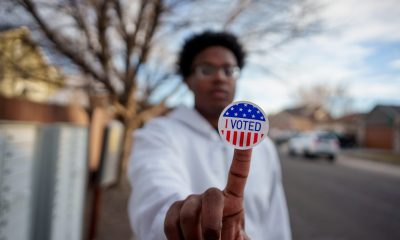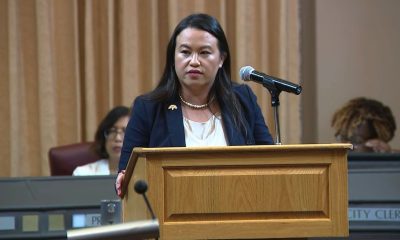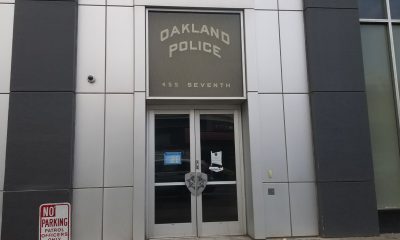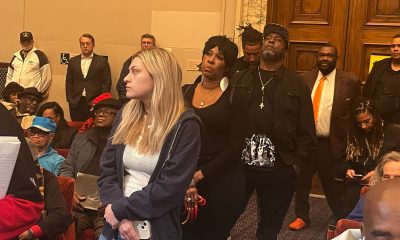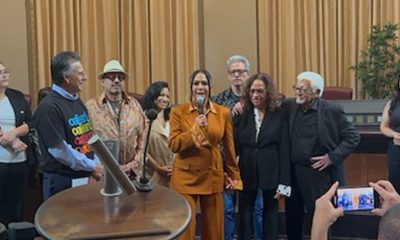News
Mayor Withdraws Nomination of Police Commissioner Who Defended U.S. Drone Killings
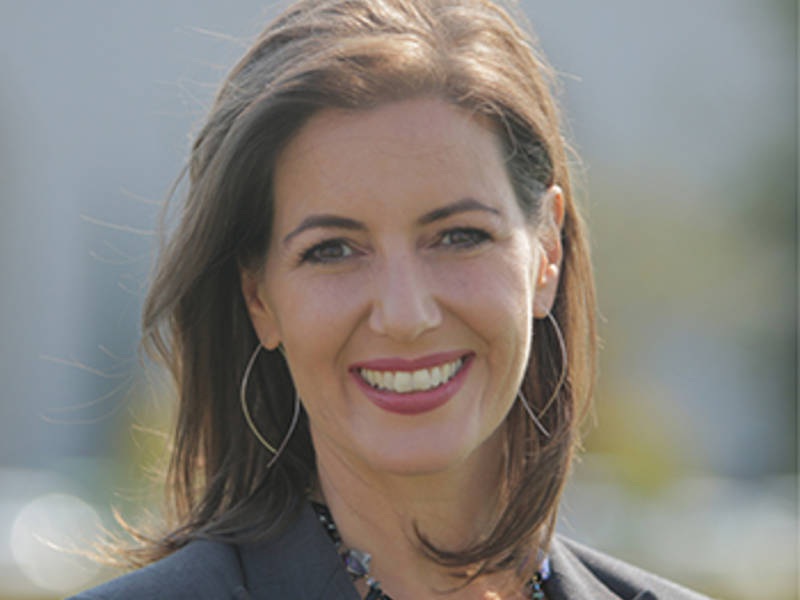
In the face of opposition, Mayor Libby Schaaf has withdrawn her proposed appointment of an ex-U.S. District Attorney as a police commission alternate. Brian Hauck, in a former position, defended the U.S. government’s killing by drone attack of two U.S. citizens accused not of violence but of “incendiary commentary.”
These extra-judicial drone killings have been condemned internationally. In the 2013 lawsuit against the federal government, the ACLU and the Center for Constitutional Rights the family of the man and his teenaged son, who was killed in Yemen in 2011.
At last Thursday’s Rules Committee meeting, the Schaaf administration proposed that Hauck serve as an alternative commissioner on the Police Commission.
At the meeting, Schaaf’s Chief of Staff Elinor Buchen praised Hauck for his “years of experience in the Department of Justice…he brings a level of expertise on some of the more technical issues.”
Hauck said, “I do have experience in these issues and look forward to serving the community whatever way the city would find helpful.”
The resolution to appoint Hauck was placed on the consent calendar on this week’s City Council agenda, which meant that it was not considered controversial and would probably be approved with little or no discussion.
However, the proposal quickly unraveled after Hauck’s background was brought to the attention of City Councilmembers and the public by journalist Jaime Omar Yassin at “Oakland News at Hyphenated Republic” (https://hyphenatedrepublic.com).
City Council President Rebecca Kaplan took the item off the consent calendar, in a motion seconded by Noel Gallo, meaning that it would have to be debated in public. A number of public speakers spoke against the resolution. Finally, the Mayor’s Office pulled the resolution off the agenda.
“Before it was pulled by the Mayor’s staffer there was public comment including public criticism of the nomination,” Kaplan told the Oakland Post after the meeting.
“I was told about the issue by a local journalist,” she said. “I agree with many in the community who spoke on their concerns about the nomination, given the undisclosed prior role defending extra-judicial killings.”
The 2011 case received wide attention around the world, involving the extra-judicial killing of Anwar Al Awlaki and his 16-year-old son Abdulrahman Al Awlaki in a U.S. drone attack.
The family’s lawsuit argued that then- U.S. Defense Secretary Leon Panetta and then-CIA Director David Petraeus, among others, were liable for having violated the constitutional rights the Al Awlakis.
Hauk represented the U.S. government in the hearing. According to a summary of the case by journalist Yassin, Hauck argued the U.S. could not be responsible for extra-judicial assassinations of citizens because it would “distract” those officials with the fear of litigation.
He also argued that though the two did have constitutional rights, “no court was capacitated to consider those rights’ – only the executive in consultation with Congress could decide on such matters.
Rashidah Grinage of the Coalition for Police Accountability told the Oakland Post as a former U.S. attorney, Hauck could respond that he had no choice but to make the case that he was assigned to make by his employer. However, she did question why he failed to disclose the issue to the mayor or the Police Commission, when he was interviewed by the selection committee
“This seems to reflect a lack of political awareness, especially about Oakland,” she said.
Activism
Oakland Post: Week of April 17 – 23, 2024
The printed Weekly Edition of the Oakland Post: Week of April 17 – 23, 2024

To enlarge your view of this issue, use the slider, magnifying glass icon or full page icon in the lower right corner of the browser window. ![]()
California Black Media
Yahushua’s Law: Senate Advances Bill to Protect Students from Extreme Weather
In a significant move towards student safety, the California Senate Education Committee passed Senate Bill (SB) 1248, also known as Yahushua’s Law, on April 3. The bill is named in memory of Yahushua Robinson, a 12-year-old student from Lake Elsinore, who tragically died due to a heat-related illness during a physical education class in 2023. It is a pioneering effort to prevent similar incidents in the future.

By California Black Media
In a significant move towards student safety, the California Senate Education Committee passed Senate Bill (SB) 1248, also known as Yahushua’s Law, on April 3.
The bill is named in memory of Yahushua Robinson, a 12-year-old student from Lake Elsinore, who tragically died due to a heat-related illness during a physical education class in 2023. It is a pioneering effort to prevent similar incidents in the future.
Authored by Senator Melissa Hurtado (D-Bakersfield) and co-authored by Assemblymember Akilah Weber, M.D. (D-La Mesa), SB 1248 directs the California Department of Education to develop comprehensive guidelines for schools regarding student activity during all extreme weather conditions.
“No student should ever lose their life on campus to extreme weather when we can take steps to protect them by preparing statewide plans to minimize exposure to the most harmful elements of exposure,” Hurtado said after introducing SB 1248.
The bill stipulates that schools must implement safety measures which include monitoring weather forecasts, postponing or relocating outdoor activities during hazardous conditions, and ensuring students have proper hydration and access to shade. It also requires schools to establish clear communication plans to keep parents, teachers, and students informed about potential weather hazards.
Supporters of the bill include the Robinson family, advocate Christina Laster, Bold Enterprises LLC, California Black Women’s Collective Empowerment Institute, Familias Empoderadas del Valle Central National Action Network, The Black Student Advocate, and the Ventura County Alumnae Chapter of Delta Sigma Theta Sorority.
Thanking Hurtado for introducing this crucial legislation, Weber said, “The story of Yahushua Robinson last year was heartbreaking. We have protections for farm workers and other industries in the case of extreme weather, now climate change is forcing us to also extend similar protections to students at school.”
Barbara Lee
Congresswoman Barbara Lee Issues Statement on Deaths of Humanitarian Aid Volunteers in Gaza
On April 2, a day after an Israeli airstrike erroneously killed seven employees of World Central Kitchen (WCK), a humanitarian organization delivering aid in the Gaza Strip, a statement was release by Rep. Barbara Lee (D-CA-12). “This is a devastating and avoidable tragedy. My prayers go to the families and loved ones of the selfless members of the World Central Kitchen team whose lives were lost,” said Lee.

By California Black Media
On April 2, a day after an Israeli airstrike erroneously killed seven employees of World Central Kitchen (WCK), a humanitarian organization delivering aid in the Gaza Strip, a statement was release by Rep. Barbara Lee (D-CA-12).
“This is a devastating and avoidable tragedy. My prayers go to the families and loved ones of the selfless members of the World Central Kitchen team whose lives were lost,” said Lee.
The same day, it was confirmed by the organization that the humanitarian aid volunteers were killed in a strike carried out by Israel Defense Forces (IDF). Prior to the incident, members of the team had been travelling in two armored vehicles marked with the WCF logo and they had been coordinating their movements with the IDF. The group had successfully delivered 10 tons of humanitarian food in a deconflicted zone when its convoy was struck.
“This is not only an attack against WCK. This is an attack on humanitarian organizations showing up in the direst situations where food is being used as a weapon of war. This is unforgivable,” said Erin Gore, chief executive officer of World Central Kitchen.
The seven victims included a U.S. citizen as well as others from Australia, Poland, the United Kingdom, Canada, and Palestine.
Lee has been a vocal advocate for a ceasefire in Gaza and has supported actions by President Joe Biden to airdrop humanitarian aid in the area.
“Far too many civilians have lost their lives as a result of Benjamin Netanyahu’s reprehensible military offensive. The U.S. must join with our allies and demand an immediate, permanent ceasefire – it’s long overdue,” Lee said.
-

 Activism4 weeks ago
Activism4 weeks agoOakland Post: Week of March 27 – April 2, 2024
-

 #NNPA BlackPress4 weeks ago
#NNPA BlackPress4 weeks agoCOMMENTARY: D.C. Crime Bill Fails to Address Root Causes of Violence and Incarceration
-

 #NNPA BlackPress4 weeks ago
#NNPA BlackPress4 weeks agoMayor, City Council President React to May 31 Closing of Birmingham-Southern College
-

 #NNPA BlackPress4 weeks ago
#NNPA BlackPress4 weeks agoBeloved Actor and Activist Louis Cameron Gossett Jr. Dies at 87
-

 Community1 week ago
Community1 week agoFinancial Assistance Bill for Descendants of Enslaved Persons to Help Them Purchase, Own, or Maintain a Home
-

 Activism3 weeks ago
Activism3 weeks agoOakland Post: Week of April 3 – 6, 2024
-

 Business1 week ago
Business1 week agoV.P. Kamala Harris: Americans With Criminal Records Will Soon Be Eligible for SBA Loans
-

 Activism2 weeks ago
Activism2 weeks agoOakland Post: Week of April 10 – 16, 2024


